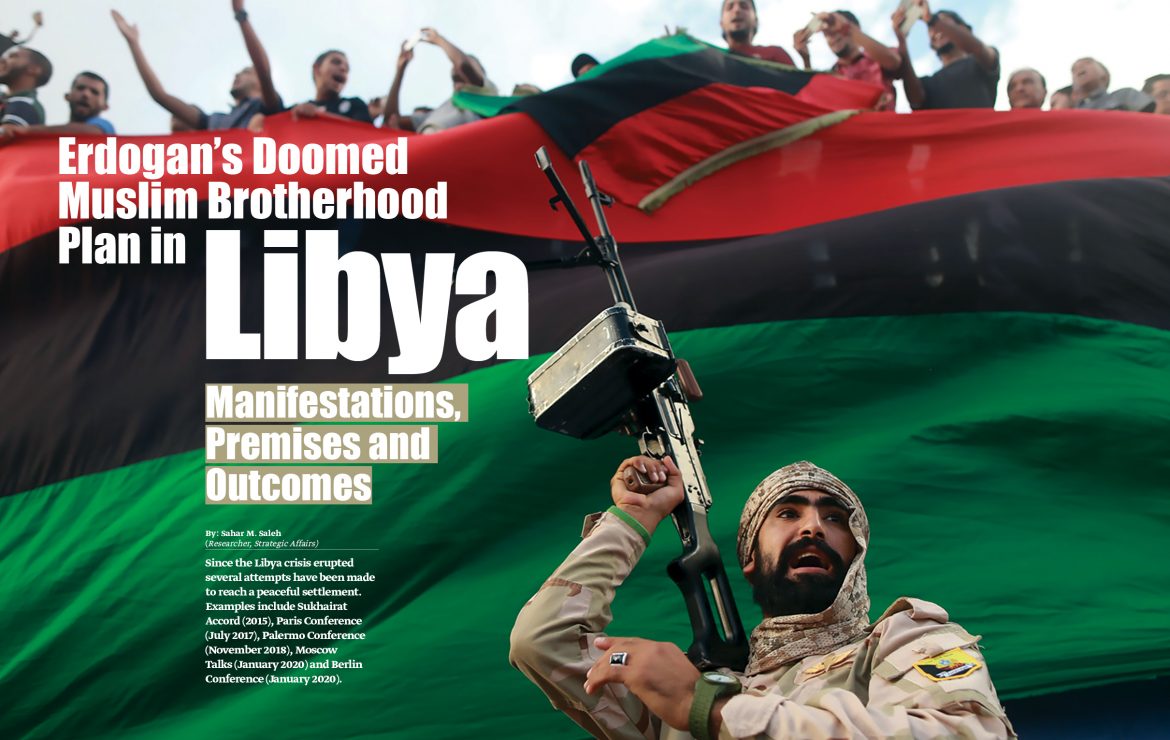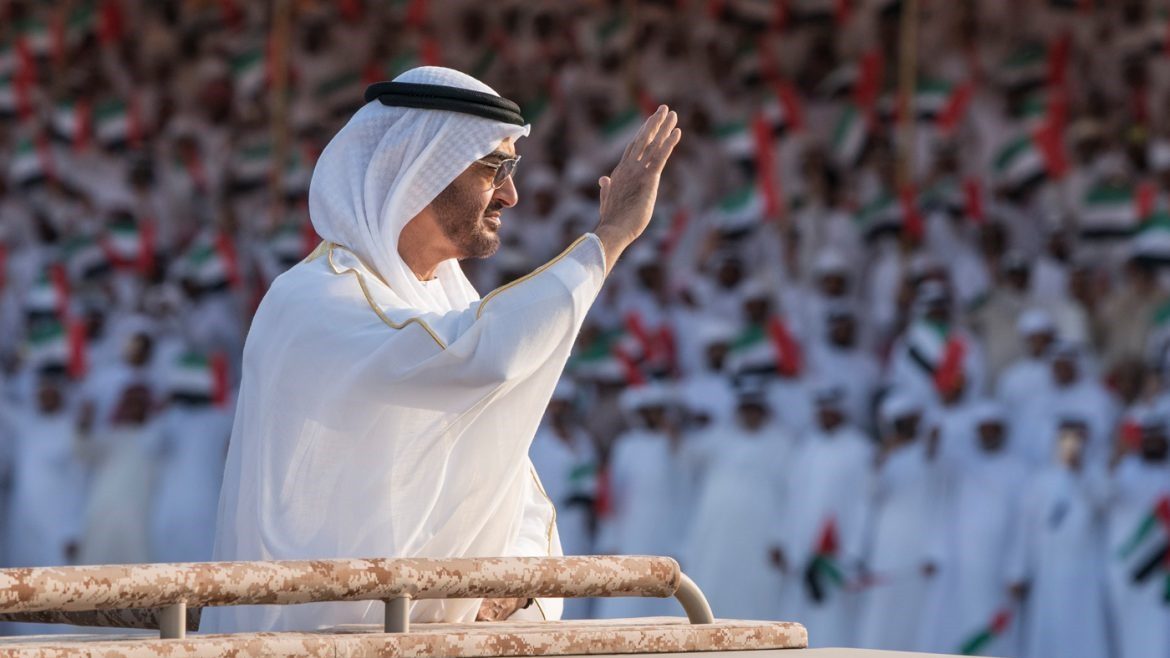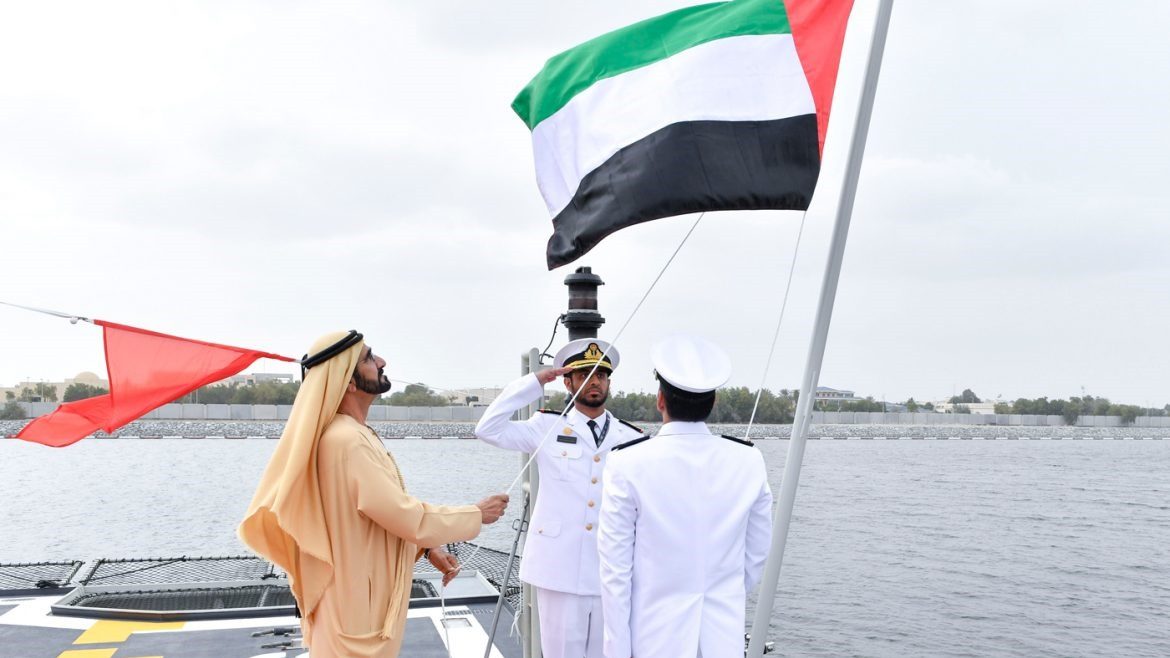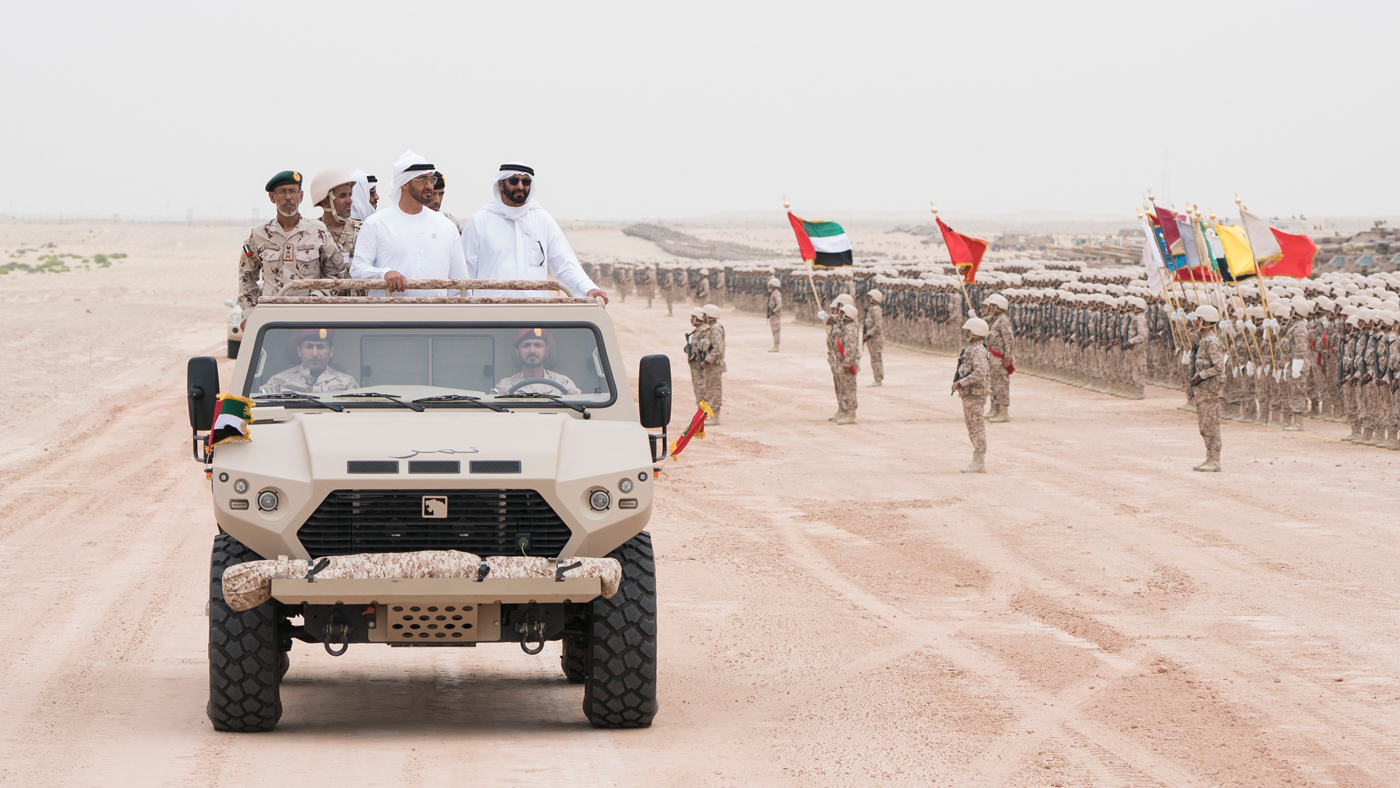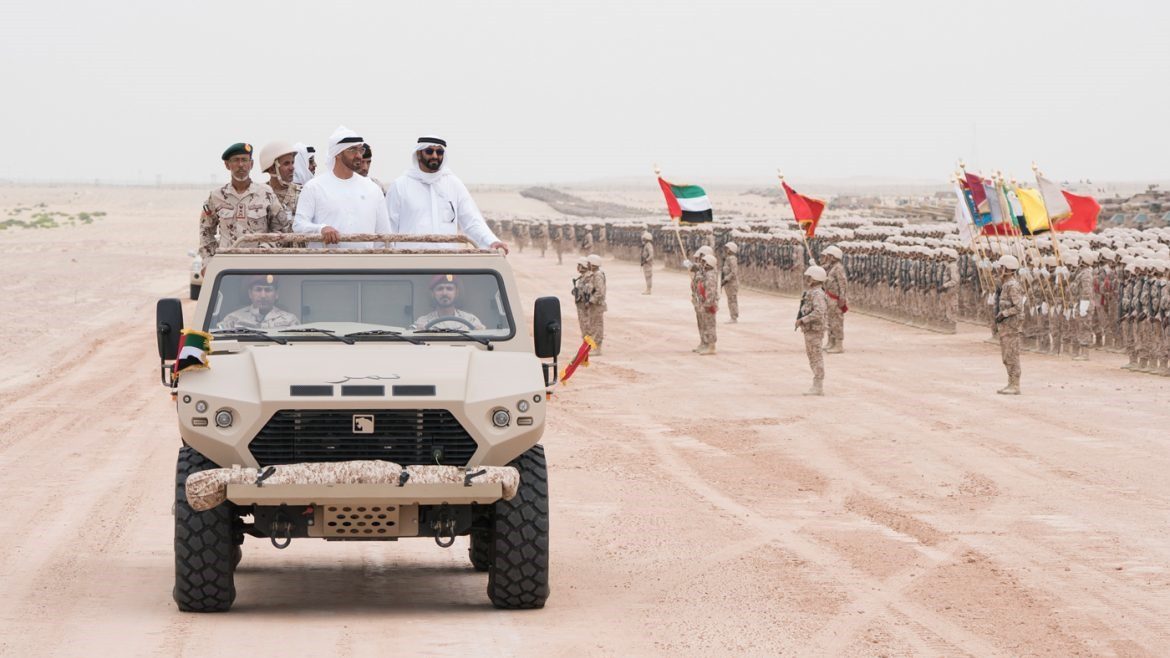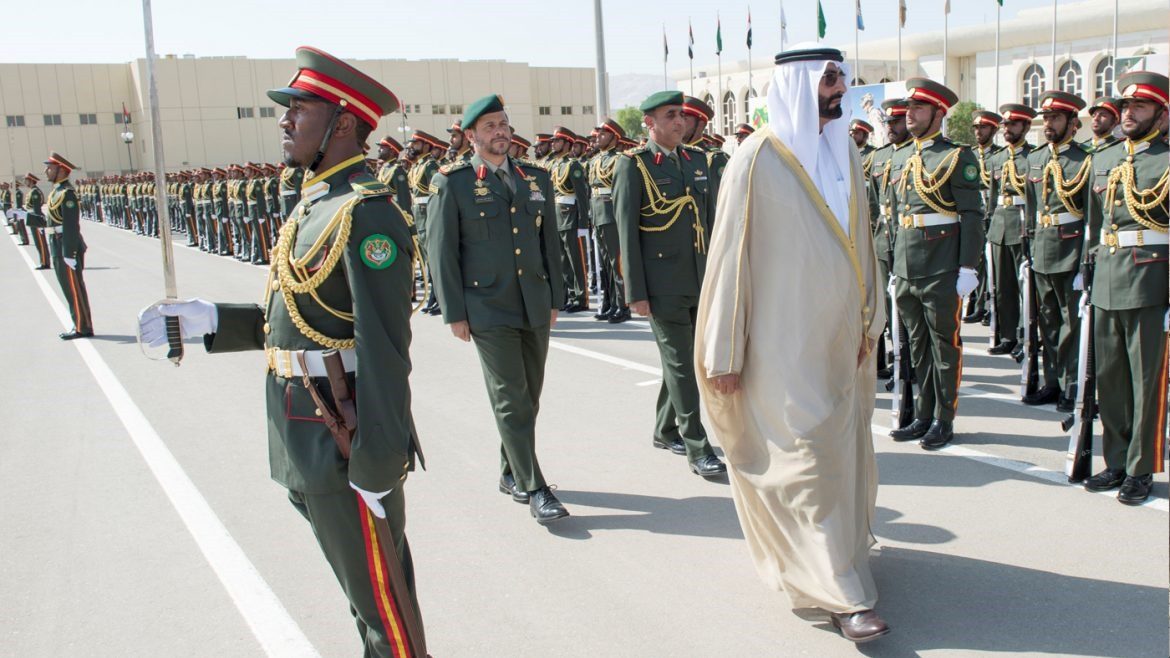Since the Libya crisis erupted several attempts have been made to reach a peaceful settlement. Examples include Sukhairat Accord (2015), Paris Conference (July 2017), Palermo Conference (November 2018), Moscow Talks (January 2020) and Berlin Conference (January 2020).
Turkey’s role supporting Muslim Brotherhood and terrorist militias under Erdogan’s plan for regional hegemony has been a main obstacle before any political solution for the Libya crisis. The last attempt at a political solution was the Berlin Conference earlier this year, and while attending the Conference the Turkish President was taking preparations to move armed militia from Syria to Tripoli across Turkey, taking advantage of a loophole banning any arms transport or flow into Libya rather than banning troop deployment.
First: Manifestations
Throughout the long years of struggle in Libya, Turkey has been a main provider of high quality weapons such as air defence and unmanned air systems and a main supporter of the Government of National Accord (GNA) militia lest it falls or overpowered by the Libyan National Army.
1 In November 2019 the Government of National Accord (GNA) signed a memorandum of security and military cooperation with Turkey in a bid to “legalize” Turkish military support. The step was met with widespread regional and international criticism, especially when GNA Premier Fa’ez Al Seraj had, technically, no right to sign foreign agreements, as the 2015 Sukhairat agreement which brought this government into existence was legally invalid.
2 In January 2020 the Turkish President announced that his country had started deploying troops in Libya in support of GNA. Thus was came a few days before Berlin Conference on Libya, and troops continued to deploy after the Conference. Turkey is reported to have sent thousands of its troopers in Syria to Libya in order to help Al Seraj, especially after the Libyan National Army (LNA) had tightened its grip considerably in Tripoli. Erdogan himself admitted this incident by saying “Turkey is maintaining presence there by a force carrying out training operations. There are also people from the Syrian National Army”.
3 When the EU launched Operation IRINI in March 2020 to monitor arms ban to Libya, Turkey was the only nation against this Operation which was described as illegal, and called on participating countries to reconsider their position. Ankara even defied them and announced it would continue to support Al Seraq government.
4 In April 2020 Ankara has reportedly provided GNA with F-16 fighter jets. Early in May 2020 the Turkish President looked as if leading the battle himself – side by side with A; Seraj militia- against LNA. “Fresh good news is coming from Libya thanks to Turkey’s support for the legitimate government in Libya”, he said.
5 While the UN Secretary General was calling for a global truce to counter the coronavirus pandemic Turkey took the chance to provide Seraj-led GNA with direct military support and sent naval vessels which dropped their anchors near the Libyan shores to attack LNA.
6 After LNA’s withdrawal from Al Watiya military base on 18 May 2020 Turkey had a remarkable official and media celebration, in direct confession of Turkish involvement in the Libya conflict and in militarily supporting GNA militia. Turkey tried to leave the impression that Seraj militia control over the base was a big victory for it, though LNA claimed that withdrawal from this base was tactical and will not undermine the course of battles.
Turkish military intervention in Libya rests mainly on the position adopted by LNA which imposes itself on the Libyan people and picked Turkey as a main supporter.
Second: Premises
Libya is particularly important for Turkey for many reasons, notably:
1 Oil wealth and the desire to win reconstruction contracts are Turkey’s most important attractions to compete with Egypt, Greece and Cyprus for gas exploration in the Eastern Mediterranean Sea and get a big bite of Libyan oil which is Africa’s largest reserve (about 34 billion barrels), while Turkey has to import 95% of its consumption capacity from abroad.
2 Turkey takes GNA as an extension of the political Islam movement in North Africa, following movement’s failure in both Egypt and Morocco. Erdogan may hope Libya would be his economic gate to the heart of Africa in future and could use it to ship migrants and terrorists to Europe as a pressure card on the for EU for rejecting Turkey’s EU membership.
3 Considering Turkey’s isolation in the Mediterranean Sea, Erdogan takes pro-Turkey GNA in Tripoli as a lifeline to maintain his influence in southern Mediterranean and beat regional isolation.
4 Military involvement in Libya in addition to Syria enables Erdogan to achieve two goals: keep the military busy in outdoor battles for fear of any possible coup, and keep the Turkish people busy with foreign issues to distract them from the suffocating domestic economic crisis.
5 Erdogan is trying to establish a Turkish military base in Libya, similar to the one in Qatar and Somalia. Ankara is reportedly in intensive negotiations with GNA to establish a miniature base near Tripoli.
6 Libya’s importance for Erdogan stems, moreover, from proximity to Egypt and Tunisia, where he hopes to use Libya as a pressure card against Cairo – a move that could boost his relationship with the Muslim Brotherhood and win a strong foothold in North Africa.
7 Erdogan could use the Libyan card to pressure -if not blackmail- Europe with security, migrants issues.
Third: Outcomes
There are several reasons that make Erdogan’s plan in Libya doomed eventually, notably:
There is a great deal of regional concern about Turkey’s role in Libya. Many regional players, principally Egypt, take this role as a serious threat to their national security and would spare no pains to neutralize in every way possible. Even Algeria, which the Turkish President tried to neutralize or win to his side in the Libyan file, rejects any Turkish military presence along its borders.
The EU, despite disagreement on Libya, is unanimous about rejecting Turkish military intervention in Libya.
Russia has been intensifying its role remarkably on the Libyan front over the last few months and is taking Erdogan’s siding with Seraj as a challenge. Russia is not expected to stay handcuffed in the forthcoming period despite the little temporary “victories”by GNA.
There is regional and international agreement that Erdogan’s “victory” in Libya will have grave consequences on regional and international security.
Finally, Erdogan’s plan in Libya is part of the Muslim Brotherhood’s regional plan, which is doomed and stands no chance to hold either because of international rejection or because it was unmasked by the peoples of the region.
By: Sahar M. Saleh (Researcher, Strategic Affairs)


